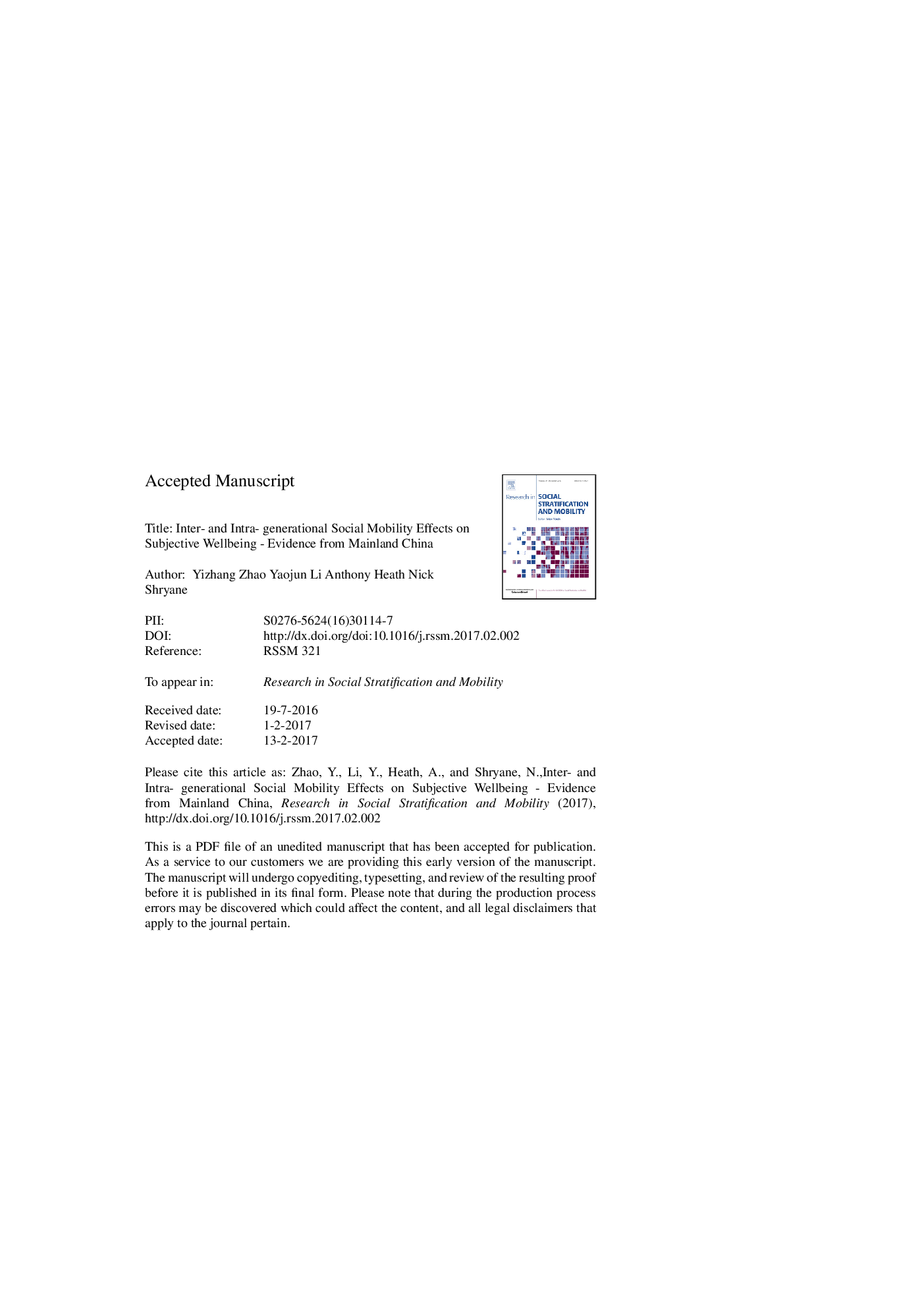| Article ID | Journal | Published Year | Pages | File Type |
|---|---|---|---|---|
| 5106604 | Research in Social Stratification and Mobility | 2017 | 48 Pages |
Abstract
This paper contributes to the literature on well-being research by showing the distinct impacts of inter- and intra-generational social mobility on subjective well-being in mainland China. Based on the China General Social Surveys of 2006, we used diagonal reference modelling and other regression methods to assess the effects of social mobility on well-being. We found that well-being was associated with changes in class positions. In both inter- and intra-generational mobility trajectories, moving upward into a higher position was beneficial for people's well-being whereas different consequences were found for downward mobility: in the case of intergenerational mobility, downward mobility into the manual class did not have a marked effect on people's well-being as the downwardly mobile from privileged backgrounds held the prospect of counter-mobility at early career stages and inherited valuable resources; but downward mobility in one's own career life was rather detrimental to subjective well-being, as the downwardly mobile had to bear not only the material disadvantages found in the lower position, but also the psychological effects ensuing from the downward trajectory. We conclude that while those experiencing downward intergenerational mobility may resort to family advantages to help maintain their well-being levels, a similar trajectory in one's own career life may have a direct negative consequence.
Keywords
Related Topics
Social Sciences and Humanities
Economics, Econometrics and Finance
Economics, Econometrics and Finance (General)
Authors
Yizhang Zhao, Yaojun Li, Anthony Heath, Nick Shryane,
